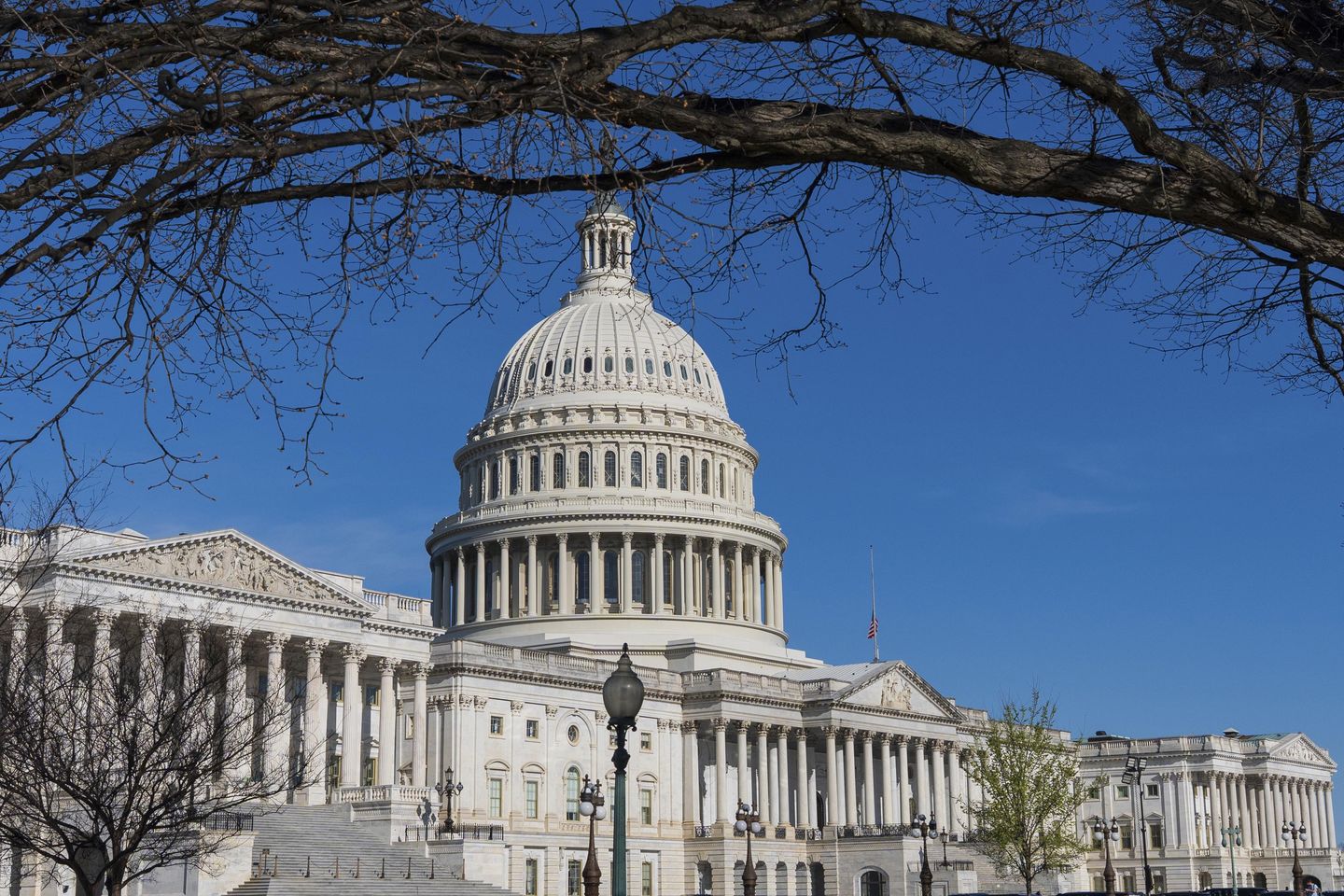
A faction of hardline Republicans sank an attempt to advance President Trump’s “one big, beautiful bill,” a major blow to the House GOP’s plan to pass the colossal package next week.
The House Budget Committee failed to move it on Friday after hardliners from the House Freedom Caucus stood firm on their promise to vote against advancing the measure out of committee in pursuit of firmer commitments on deep spending cuts.
Their resistance comes after Mr. Trump demanded they fall in line behind his legislative agenda.
The package failed in a 16-21 vote, with Republican Reps. Chip Roy of Texas and Ralph Norman of South Carolina, Josh Brecheen of Oklahoma and Andrew Clyde of Georgia voting with all Democrats on the panel against it.
Another Republican, Rep. Lloyd Smucker of Pennsylvania, switched his vote from yes to no, enabling him to bring the bill back at a later time.
The four GOP lawmakers who voted against the measure ignored a directive from Mr. Trump. Ahead of the vote, he demanded Republicans “must unite” to advance the bill.
SEE ALSO: Trump blasts ‘grandstanders,’ demands House GOP pass his mega bill
“The Country will suffer greatly without this Legislation, with their Taxes going up 65%. It will be blamed on the Democrats, but that doesn’t help our Voters. We don’t need ‘GRANDSTANDERS’ in the Republican Party,” the president said.”STOP TALKING, AND GET IT DONE! It is time to fix the MESS that Biden and the Democrats gave us. Thank you for your attention to this matter!”
Meanwhile, House Democrats took credit for sinking the bill.
“House Democrats on the Budget Committee led the charge and just defeated the GOP Tax Scam. Republicans have been sent home for the weekend,” House Minority Leader Hakeem Jeffries, New York Democrat, crowed on social media. “We will always protect the healthcare of the American people and never surrender to this extreme agenda.”
The Republicans who voted against the bill want firmer commitments to deep spending cuts, and they want a faster timetable to enact work requirements for Medicaid and the phasing out of clean energy tax credits, measures that the legislation delays until 2029.
In its current state, the reconciliation package frontloads new spending and only achieves spending cuts later on, they said.
“This isn’t a grandstand, I don’t need to grandstand,” Mr. Norman said. “How do you disagree with the agenda he laid out? He’s a smart guy, and he’s got so many good things. Now we’re asking, we’ll compromise somewhere, but we’re just not giving the farm away. It’s not right.”
Before the vote, the holdouts held a confab with House Majority Leader Steve Scalise, Louisiana Republican, in a room across the hall from the Budget Committee hearing room.
Mr. Scalise said progress was being made, including input from the White House, about moving up the timetable for Medicaid and clean energy cuts.
“We want to have work requirements. We want to phase out a lot of these green subsidies. You know, how quickly can you get it done? And it’s not as quickly as saying ‘you just turn it off tomorrow,’” he said. “The administration does have to actually create a process to implement it, and we want to make sure that the Trump administration has the time they need while pushing as fast as possible.”
Negotiations on bridging the gap with the budget panel holdouts are expected to continue over the weekend, with another vote slated for Sunday night.
If the legislation advances on Sunday, a full vote on the floor could happen by Friday.
House Budget Committee Chair Jodey Arrington, Texas Republican, said that he agreed with the four GOP holdouts’ goals but not their tactics.
“Their hearts are in the right place. Their motives are pure,” he said. “I share their convictions, and I share their desired outcomes of changing some of these policies and making the bill better. This is not the venue to do it. That’s what I told them, and they have to make those decisions.”
Other issues also threaten the package of tax and spending cuts that are the heart of Mr. Trump’s legislative agenda.
A group of blue-state Republicans is demanding a larger increase to federal income tax deductions for state and local taxes, or SALT, in the tax package.
The legislation currently raises the cap to $30,000, with reduced tax relief for people making over $400,000 a year, which triples the current cap in place.
But, members of the SALT Caucus, which included Republicans from New York, California and New Jersey, say it is not enough tax relief for their constituents and they threaten to vote down the bill on the House floor.


![Trump Posts Hilarious Pope Meme, Leftists Immediately Melt Down [WATCH]](https://www.right2024.com/wp-content/uploads/2025/05/Trump-Posts-Hilarious-Pope-Meme-Leftists-Immediately-Melt-Down-WATCH-350x250.jpg)


![Bessent Exposes Media Lies About April’s Stock Market Performance [WATCH]](https://www.right2024.com/wp-content/uploads/2025/04/Bessent-Exposes-Media-Lies-About-Aprils-Stock-Market-Performance-WATCH-350x250.jpg)

![Taylor Swift Slams Subpoena in Blake Lively’s Explosive Legal Battle [WATCH]](https://www.right2024.com/wp-content/uploads/2025/05/1746936931_Taylor-Swift-Slams-Subpoena-in-Blake-Livelys-Explosive-Legal-Battle-350x250.jpg)

![Eric Adams Pushes Back on Schumer’s Coast Guard Cutback Claims After Brooklyn Bridge Tragedy [WATCH]](https://www.right2024.com/wp-content/uploads/2025/05/Eric-Adams-Pushes-Back-on-Schumers-Coast-Guard-Cutback-Claims-350x250.jpg)
![ICE Facility Under Siege in Portland as Mob Tries to Breach Cells [WATCH]](https://www.right2024.com/wp-content/uploads/2025/07/ICE-Facility-Under-Siege-in-Portland-as-Mob-Tries-to-350x250.jpg)






